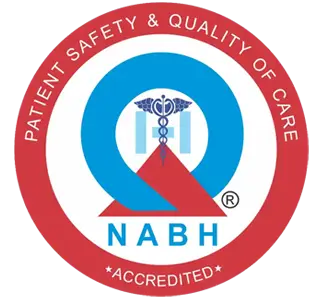Home - Treatment
Cancer treatment:
The treatment of cancer depends on the patient factors, disease factors and the environment factors. The patient factors include the age of the patient, the general condition of patient, the comorbidities (diabetes, hypertension, asthma, epilepsy, coronary artery disease etc.) and the tolerance of patient to the treatment which is often different for each patient. The treatment factors include the stage and extent of disease, the biology and the histopathology of disease which determine its sensitivity or resistance to the standard treatment. The environment factors include the availability of the treatment facilities in the locality, the economic feasibility of the treatment and the social support for the patient from family and society.
Majority of patients in India present in advanced cases, about 60-80%. The availability and utilization of cancer screening in the community contributes to early detection and better treatment which results in complete cure. The purpose of cancer treatment is divided into two- curative and palliative.
The curative treatment is possible for patients with localized or early advanced cancers whereas the palliative treatment only is possible for the very advanced cancers.
The palliative treatment aims at reducing the cancer related symptoms and making patient more comfortable in daily living. Palliative care is a very essential domain of cancer care and imparts humane empathy and concern to cancer patients. Apart from taking care of the pain and physical symptoms, the psychosocial and spiritual health also is given proper importance.
The standard treatment of cancer at present is multimodality care where different specialties work together for effective eradication or control of the disease.
The main specialties involved in the treatment of cancer are:
1. Surgical oncology with Anaestesiology team
2. Radiation oncology
3. Medical Oncology and Haemetology including immunology
4. Paediatric oncology
5. Imageology and Intervention Radiology
6. OncoPathology
7. Physical and Rehabilitative Medicine(including speech and swallowing)
8. Preventive and Community Oncology
9. Pain and Palliative Medicine
10. Oncology Nursing
The treatment decision is always taken at the Multidisciplinary Tumor Board at Malabar Cancer Center PGIOSR and involves active discussion between the above specialties about various treatment options and the best appropriate treatment schedule is selected and implemented after discussion with patient and their informed consent.
1) Surgical Oncology: The role of surgeon in cancer management includes surgery for primary, surgery of metastases, cyto reductive surgery, palliative surgery, reconstructive and rehabilitative surgery, vascular access and surgery for oncologic emergencies like spinal cord compression. The cardinal principal of surgical cure is complete removal of neoplastic tissue. At MCC-PGIOSR, the surgical oncology team provides comprehensive surgical care to cancer patients.
2) Radiation Oncology: The treatment of cancer with ionizing radiation is called radiotherapy. Radiation oncology is the specialized branch of medicine which uses radiotherapy for cancer treatment and also is involved as a cancer physician in evaluation, diagnosis and management of cancer including the toxicities of treatment and follow up of patient. The main clinical types of radiotherapy treatment are external beam radiotherapy and brachytherapy. External beam radiotherapy is delivered in Cobalt machines or Linear accelerators by gamma rays or X rays. The treatment planning and delivery have advanced in last few decades and is presently done on computer based treatment planning systems and latest technology linear accelerators. This has converted radiation therapy into very precise and accurate which contributes to better cure rates with fewer side effects. At MCC-PGIOSR, RapidArc based image guided radiotherapy is used for patient care and is one of the most advanced radiotherapy technologies available in the world. Brachytherapy is done at MCC-PGIOSR mainly for gynecological cancers and also for esophageal, breast and head and neck cancers. At MCC-PGIOSR, the radiation oncology team is effectively involved in clinical oncology care including the chemotherapy of solid malignancies.
3) Medical Oncology and Hematology: The treatment of cancer using chemotherapy and targeted therapy is done under specialty of medical oncology and in case of hematological malignancies, also done under specialty of hematology. These treatments require well trained oncology nursing staff for administering chemotherapy safely and also for proper care of patients with chemotherapy induced side effects as per the oncologists instructions. The aspect of patient personal hygiene and hospital staff hygiene and sterile precautions during patient interaction is always very important to reduce hospital acquired infections. At MCC-PGIOSR, the hematology department is actively involved against hematological malignancies. The stem cell transplant facility is expected to be operational in few months. The subspecialty of Pediatric Oncology is also available at MCC-PGIOSR.













